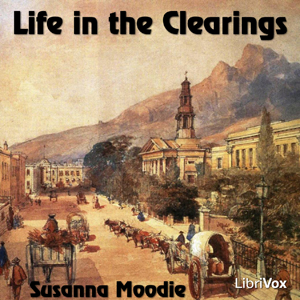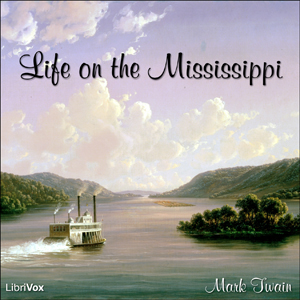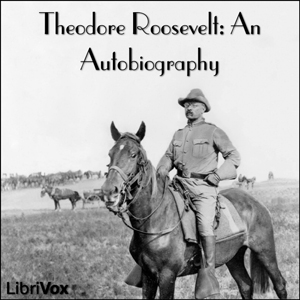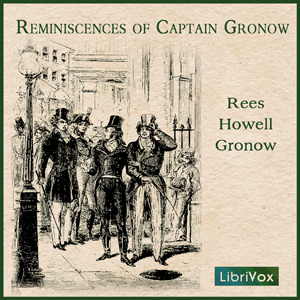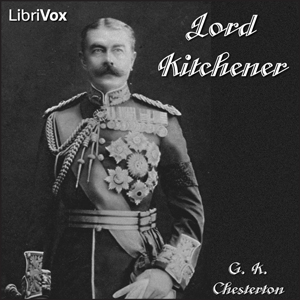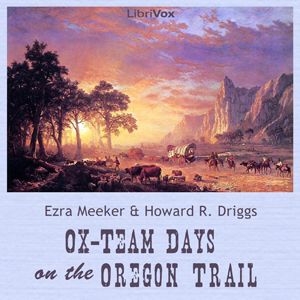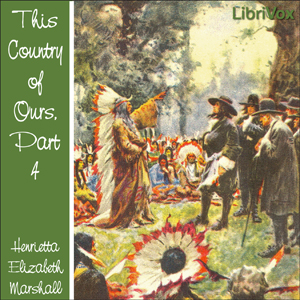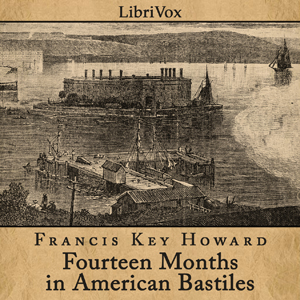Herbert Allen Giles (1845-1935) spent several years as a diplomat in China and in 1897 was appointed Cambridge University’s second professor of Chinese. His published works cover Chinese language and literature, history and philosophy.This series of lectures, published as “China and the Chinese”, was given at Columbia University in 1902, to mark the establishment of a Chinese professorship there. The lectures were not intended for the specialist, more to urge a wider and more systematic study of China and its culture, and to encourage new students into the field.While many of the observations are just as relevant today, others will remind us how much China has changed since the period of the Manchu Qing dynasty in which he wrote.(summary by David Barnes)
6 episodes
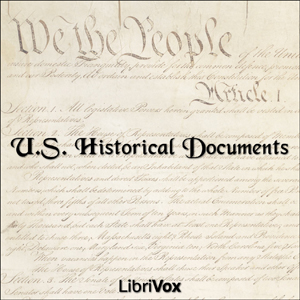
The Articles of Confederation: On November 15th, 1777 The Articles of Confederation became the first constitution of the United States, though not yet ratified by the thirteen original colonies. Ratification of the Articles took place almost three and a half years later on March 1st, 1781. The purpose of the articles was to create a confederation of sovereign states with a weak central government; thus allowing state governments to wield most of the power. It wasn’t long before the need for a stronger federal government was realized which led to the Articles being replaced by the United States Constitution. The Articles of Confederation is the common term for The Articles of Confederation and Perpetual Union.
The U.S. Constitution: The United States Constitution is the legal backbone of the United States of America and comprises the basic laws of the United States Federal Government. Delegates from twelve of the thirteen original colonies put the Constitution’s frame work together in May 1787 in Philadelphia. The Constitution defines the three branches of government and their jurisdictions; they are the Executive Branch (President/Vice President), Legislative Branch (Congress comprised of the Senate & House of Representatives), and the Judicial Branch (the Supreme Court). The need for three branches of government was to create a separation of powers so that not one person or group has full responsibilities, but that they’re spread out and each branch must refer to the other by a means of checks and balances.
The Declaration of Independence: The Declaration of Independence is a document that is the epitome of freedom and liberty. It was drafted by Thomas Jefferson in 1776 as a list of grievances against the King of England, George III. The Declaration expresses the conviction of Americans in a philosophy of self-evident truths of what individual liberty and freedom should be. The Declaration was the beginning to separation from England and the catalyst for a birth of a nation.
The Gettysburg Address: The Gettysburg Address is considered one of the greatest and most quoted speeches of a President throughout American history. President Abraham Lincoln gave his address on the battlefield at Gettysburg, Pennsylvania on November 19th, 1863. It was a few months after the battle at Gettysburg was over, the purpose of Lincoln being there was to consecrate a cemetery to the fallen Union soldiers of the Civil War. It is believed that Lincoln’s main goal of this opportunity was to fight for the United States as a united country and to express the equality of all under the law. (Summaries by Aldark)
4 episodes
As a middle class Englishwoman Moodie did not particularly enjoy "the bush", as she called it. She and her husband moved to Belleville in 1840, which she referred to as "the clearings". Here she described urban life, including religion, art, and education, especially as compared to relative lack of these things in "the bush". She studied the Family Compact and became sympathetic to the moderate reformers led by Robert Baldwin, while remaining critical of radical reformers such as William Lyon Mackenzie. This caused problems for her husband, who shared her views, but, as sheriff of Belleville, had to work with members and supporters of the Family Compact. (Summary from Wikipedia)
This was read as a duet by Cori Samuel and Esther. Joined in section 9 by Jim Mowatt, and in section 12 by Glen Hallstrom.
20 episodes
Life on the Mississippi is a memoir by Mark Twain detailing his days as a steamboat pilot on the Mississippi River before the American Civil War. (Summary from Wikipedia)
64 episodes
J'accuse est le titre d'un article rédigé par Émile Zola lors de l'affaire Dreyfus et publié dans le journal L'Aurore du 13 janvier 1898 sous forme d'une lettre ouverte au Président de la République Félix Faure. Il s'est inspiré d'un dossier fourni en 1896 par l'écrivain Bernard Lazare. (Résumé de Wikipedia)
"J'accuse!" (I accuse!) was published January 13, 1898 in the maiden issue of the newspaper L'Aurore (The Dawn). It had the effect of a bomb. In the words of historian Barbara Tuchman, it was "one of the great commotions of history." Zola's intent was to force his own prosecution for libel so that the emerging facts of the Dreyfus case could be thoroughly aired. In this he succeeded. He was convicted, appealed, was retried, and, before hearing the result, fled to England on the advice of his counsel and friends, returning to Paris in June 1899 when he heard that Dreyfus's trial was to be reviewed. (Summary from Wikipedia)
1 episodes
In his vital, illustrative and dynamic autobiography, Theodore Roosevelt let us into the life that formed one of the greatest and outspoken presidents in American history. Not only are we privy to the formation of his political ideals, but also to his love of the frontier and the great outdoors. (Summary from Bartleby.com)
50 episodes
A collection of memoirs about the Peninsular War, the Battle of Waterloo, and society and personalities of Regency London and 19th century Paris, by a sometime Grenadier Guards officer, unsuccessful parliamentarian, and dandy. Gronow displays some social attitudes of the day which would now be regarded as unacceptable, but is a clever raconteur who brings to life both the horrors of war and the gaiety of high society. (Summary by Ruth Golding and Wikipedia)
10 episodes
The book is a breezy, first-person account of a 2 month summer tour of the U.S. states of Nebraska, Wyoming, Colorado, and Kansas when Parkman was 23. (Summary by Wikipedia)
27 episodes
"The expedition of Messrs. Lewis and Clarke, for exploring the river Missouri, and the best communication from that to the Pacific Ocean, has had all the success which could be expected. They have traced the Missouri nearly to its source; descended the Columbia to the Pacific Ocean, ascertained with accuracy the Geography, of that interesting communication across the continent; learned the character of the country, its commerce and inhabitants; and it is but justice to say that Messrs. Lewis and Clarke, and their brave companions, have, by this arduous service, deserved well of their country." This volume is the 1840 edition with woodcut images and an Indian vocabulary. They may be viewed by clicking on the text URL. (Summary in quotes by President Thomas Jefferson)
28 episodes
A sketch of the second regiment of Connecticut volunteer heavy artillery, originally the Nineteenth Volunteer Infantry, in the Civil War.
7 episodes
“The paradox of all this part of his life lies in this--that, destined as he was to be the greatest enemy of Mahomedanism, he was quite exceptionally a friend of Mahomedans.” (Summary quoted from Gilbert Keith Chesterton)
4 episodes
This is a memoir by an early 19th Century American settler in the Pacific Northwest. (Description by BellonaTimes)
30 episodes
While claiming to be historical papers on the causes of the United States Civil War, the author indulges in some Slavery Apologetics. An interesting view from a southern lady on what caused the war and why the south was the underdog. (Summary by FNH)
4 episodes
Another fine history book for children! Published in 1917, Marshall’s book of stories from the history of the United States begins with accounts of exploration and settlement, and ends with the presidency of Woodrow Wilson.
This is Part 4: Stories of the Middle and Southern Colonies, from chapter 35 (The Founding of Maryland) to chapter 44 (The Founding of Georgia). Read along and view the original illustrations at mainlesson.com.
Part 1: http://librivox.org/this-country-of-ours-part-1-by-he-marshall/
Part 2: http://librivox.org/this-country-of-ours-part-2-by-h-e-marshall/
Part 3: http://librivox.org/this-country-of-ours-part-3-by-h-e-marshall/
Part 5: http://librivox.org/this-country-of-ours-part-5-by-h-e-marshall/Part 6: http://librivox.org/this-country-of-ours-part-6-by-h-e-marshall/Part 7: http://librivox.org/this-country-of-ours-part-7-by-henrietta-elizabeth-marshall/(Summary by Kara)
10 episodes
Os Sertões é um livro brasileiro, escrito por Euclides da Cunha e publicado em 1902. Trata da Guerra de Canudos (1896-1897), no interior da Bahia. Euclides da Cunha tinha presenciado uma parte desta guerra como correspondente do jornal O Estado de S. Paulo, e ao retornar escreveu um dos maiores livros já escritos por um brasileiro. Pertence, ao mesmo tempo, à prosa científica e à prosa artística. Pode ser entendido como um obra de Sociologia, Geografia, História ou crítica humana. Mas não é errado lê-lo como uma epopéia da vida sertaneja em sua luta diária contra a paisagem e a incompreensão das elites governamentais.(Sumário extraído da Wikipédia)
49 episodes
East by West: a Journey in the Recess is an account of British journalist Henry Lucy's travels across America and on to the Far East during the parliamentary recess in 1883. Lucy was one of the most influential journalists of his day and, as "Toby M.P.", a noted humorist in Punch magazine. His acute powers of observation and light touch make this a most engaging book. It is a fascinating insight into the Englishman's travels abroad within two decades of the American Civil War and the end of Japanese isolationism.This is the first of two volumes covering his journey with his wife. This first volume includes his travels in America and in Japan, including the Atlantic and Pacific crossings by steamer. Volume II, which is also available here as an audio recording, continues his experiences in Japan and India, returning home via Aden and the Suez Canal. (Introduction by Ruth Golding)
19 episodes
Francis Key Howard recounts in this book his life as a political prisoner of the United States. He points out that he was held captive at the same location where his grandfather was inspired to write the national anthem about the "land of the free," which makes a very stunning contrast. The sufferings that were imposed on him by the Union forces had the effect of solidifying his determination to resist unjust governmental dictates. (Introduction by Katie Riley)
9 episodes
Elia Peattie was an outspoken journalist and social activist who gave her attention to such areas as orphanages, charity hospitals, the Wounded Knee massacre, capital punishment, and the like. The Precipice is partially based on the life of her close friend Katherine Ostrander, a social work pioneer, and tells of the evolution of Kate Barrington after her college years and with it the evolution of society as a whole and women in particular in pre-World War I America. Friendship, romance, betrayal, searchings of the soul, dreams, and shattered hopes -- all the stuff of life -- bring Kate to full realization of her true self. (Introduction by Mary Schneider)
35 episodes
The recollections of a British infantryman who served in the British army during the Napoleonic Wars. ( Summary by Graham Keeling)
17 episodes

East by West: a Journey in the Recess is an account of British journalist Henry Lucy's travels across America and on to the Far East in 1883, within two or three decades of the American Civil War, the Indian Mutiny and the end of Japan's isolation from the western world. Lucy was one of the most influential journalists of his day and, as "Toby M.P.", a noted humorist in Punch magazine. His acute powers of observation and light touch make this a most engaging book. This is the second of two volumes and covers his experiences in Japan, India and other parts of south-east Asia, returning home via Aden and the Suez Canal. The first volume included his travels in America and in Japan, including the Atlantic and Pacific crossings by steamer.Note: In Chapter 6, Lucy understandably, to a readership wholly unfamiliar with Japan, includes lengthy statistics about Japan's systems and economy. While the reader of the text can glance at such tables and move swiftly on, this is not possible in an audiobook. Accordingly, I have made two versions of Chapter 6. The first version is completely unabridged. In the alternative file, 6alt, I have excised the longest statistical tables. (Summary by Ruth Golding )
25 episodes
Afloat on the Ohio, An Historical Pilgrimage, of a Thousand Miles in a Skiff, From Redstone to Cairo.There were four of us pilgrims—my Wife, our Boy of ten and a half years, the Doctor, and I. My object in going—the others went for the outing—was to gather "local color" for work in Western history. The Ohio River was an important factor in the development of the West. I wished to know the great waterway intimately in its various phases,—to see with my own eyes what the borderers saw; in imagination, to redress the pioneer stage, and repeople it. ( From the Preface )
23 episodes
This is the biography of Abraham Lincoln, written by two of his private secretaries. (Summary by ashleighjane)
26 episodes

”It was my good fortune to lend a helping hand to the weary travelers flying from the land of bondage.” William Still.
"Dear Sir:—For most of the years I have lived, the escape of fugitives from slavery, and their efforts to baffle the human and other bloodhounds who tracked them, formed the romance of American History. That romance is now ended, and our grandchildren will hardly believe its leading incidents except on irresistible testimony. I rejoice that you are collecting and presenting that testimony, and heartily wish you a great success." Horace Greeley.
William Still is often called the Father of the Underground Railroad. Over 14 years, he helped hundreds of slaves escape to freedom in Canada. Still was committed to preserving the stories of the bondmen and he kept careful records of the many escaped slaves who passed through the Philadelphia “station”. The Underground Railroad was published in 1871 from Still’s records and diaries. In bringing you these stories, Librivox volunteers are reading from the 1878 edition. (Summary by MaryAnn)
Complete list of recordings comprising this book:
The Underground Railroad, Part 1,
The Underground Railroad, Part 2,
The Underground Railroad, Part 3,
The Underground Railroad, Part 4,
The Underground Railroad, Part 5.
34 episodes
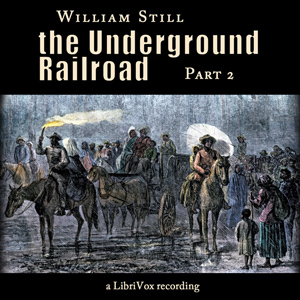
"This is one of the most remarkable volumes of the century. Its publication has only been made possible by a combination of circumstances which seldom attend the birth of a book. Before emancipation, and while the bane of slavery was on the country, the thrilling facts of this volume could not have been made public. Peace and the blessing of freedom permit their publication, free circulation and unmolested reading.Of all the thousands who favored freedom for the slaves, who gloried in the odium attached to anti-slaveryism, who witnessed the frequent efforts of the bondsmen to escape, who aided them in their quest for liberty, few dared to take notes of what they witnessed, and fewer still dared to preserve them, lest they should be turned into witnesses against them.But one man, and that the author of this book, is known to have succeeded in preserving anything like a full account of the workings of the UNDERGROUND RAILROAD, as it was called before emancipation. These records grew on his hands during the years he acted as Chairman of the Philadelphia Branch of that celebrated corporation, until they reached the extent of the present volume. They are made up of letters received, of interviews held, of narratives taken down at the time, of real reminiscence and authentic biography. Nothing imaginative enters into the composition of the volume. It is simply succinct history, always startling, sometimes bloody. The annals of no time since the Inquisition are so full of daring ventures for life and liberty or heroic endurance under most trying circumstances." (from the Publisher)William Still is often called the Father of the Underground Railroad. Over 14 years, he helped hundreds of slaves escape to freedom in Canada. Still was committed to preserving the stories of the bondmen and he kept careful records of the many escaped slaves who passed through the Philadelphia “station”. The Underground Railroad was published in 1871 from Still’s records and diaries. In bringing you these stories, Librivox volunteers are reading from the 1878 edition. (Summary by MaryAnn)
Complete list of recordings comprising this book:
The Underground Railroad, Part 1,
The Underground Railroad, Part 2,
The Underground Railroad, Part 3,
The Underground Railroad, Part 4,
The Underground Railroad, Part 5.
35 episodes

"Never before has the working of the Underground Railroad been so thoroughly explained. Here we have in complete detail the various methods adopted for circumventing the enemies of freedom, and told, as it is, with great simplicity and natural feeling, the narrative is one which cannot but make a deep impression. Thrilling incidents, heroic adventures and noble deeds of self-sacrifice light up every page, and will enlist the heartiest sympathies of all generous souls. It was eminently just that such a record of one of the most remarkable phases of the struggle against slavery should be prepared, that the memory of the noble originators and supporters of the railroad might be kept green, and posterity enabled to form a true conception of the necessity that called it into existence, and of the difficulties under which its work was performed. The labor of compiling could not have fallen into more appropriate or better qualified hands." The Philadelphia Inquirer William Still is often called the Father of the Underground Railroad. Over 14 years, he helped hundreds of slaves escape to freedom in Canada. Still was committed to preserving the stories of the bondmen and he kept careful records of the many escaped slaves who passed through the Philadelphia “station”. The Underground Railroad was published in 1871 from Still’s records and diaries. In bringing you these stories, Librivox volunteers are reading from the 1878 edition. (Summary by MaryAnn)
Complete list of recordings comprising this book:
The Underground Railroad, Part 1,
The Underground Railroad, Part 2,
The Underground Railroad, Part 3,
The Underground Railroad, Part 4,
The Underground Railroad, Part 5.
35 episodes

"The work is intensely interesting. Many of the narratives thrill the reader through and through. Some of them awaken an indignation, a horror, or a sense of humiliation and shame that makes the blood curdle or the cheek flush, or the breathing difficult. The best and the worst sides of human nature are successfully exhibited. Here heroism and patience stand out transfigured; there selfishness and brutality hold carnival till it seems as though justice had been exiled and God had forgotten his own. The number of cases reported is very large, and the method in which the author has done his work is commendable. There is no rhetorical ambition. The narratives are embodied in plain language. The facts are left to make their own impression, without an attempt to embellish them by the aid of imagination." From the "Morning Star," Dover, New Hampshire.
William Still is often called the Father of the Underground Railroad. Over 14 years, he helped hundreds of slaves escape to freedom in Canada. Still was committed to preserving the stories of the bondmen and he kept careful records of the many escaped slaves who passed through the Philadelphia “station”. The Underground Railroad was published in 1871 from Still’s records and diaries. In bringing you these stories, Librivox volunteers are reading from the 1878 edition. (Summary by MaryAnn)
Complete list of recordings comprising this book:
The Underground Railroad, Part 1,
The Underground Railroad, Part 2,
The Underground Railroad, Part 3,
The Underground Railroad, Part 4,
The Underground Railroad, Part 5.
41 episodes
Thoroughly appalled and sickened by the rising numbers of white-on-black murders in the South since the beginning of Reconstruction, and by the unwillingness of local, state and federal governments to prosecute those who were responsible, Ida Bell Wells-Barnett wrote Southern Horrors, a pamphlet in which she exposed the horrible reality of lynchings to the rest of the nation and to the world. Wells explained, through case study, how the federal government's failure to intervene allowed Southern states the latitude to slowly but effectively disenfranchise blacks from participating as free men and women in a post-Civil War America with the rights and opportunities guaranteed to all Americans by the Constitution. (Summary by James K. White )Read by James K. White and Laura Victoria
7 episodes
Another fine history book for children! Published in 1917, Marshall's book of stories from the history of the United States begins with accounts of exploration and settlement, and ends with the presidency of Woodrow Wilson.This is Part 7: Stories of the United States under the Constitution, from chapter 64 (Washington First in War, First in Peace) to chapter 99 (Wilson - The Great War). Read along and view the original illustrations at mainlesson.com . Part 1: http://librivox.org/this-country-of-ours-part-1-by-he-marshall/Part 2: http://librivox.org/this-country-of-ours-part-2-by-h-e-marshall/Part 3: http://librivox.org/this-country-of-ours-part-3-by-h-e-marshall/Part 4: http://librivox.org/this-country-of-ours-part-4-by-h-e-marshall/Part 5: http://librivox.org/this-country-of-ours-part-5-by-h-e-marshall/Part 6: http://librivox.org/this-country-of-ours-part-6-by-h-e-marshall/(Summary by Kara)
36 episodes
Historical information relating the nature, extent, and consequences of The Great Chicago Fire of 1871, the insurance losses, and the relief costs. A brief interlude of comic relief is inserted midway in the form of a poem regarding the event.. - Summary by lubee930
17 episodes

Twenty years ago, now, I attempted (but was not especially successful in the task) to establish upon the personal knowledge that my own residence as a pupil in the historical Pensionnat in the Rue d'Isabelle, at Bruxelles gave me of the facts of Charlotte Brontë's relationships to Monsieur and Madame Heger, right impressions about the experiences and emotions she underwent between 1842 and 1846, and that supply the key and clue to the right interpretation of her genius. Every opinion I then ventured to state, not upon the authority of any special power of divination or of psychological insight of my own, but solely upon the authority of this personal knowledge of Monsieur and Madame Heger in my early girlhood, and also of the information I owed to the friendship and kind assistance given me, in my endeavour to rectify false judgments, by the Heger family, has quite recently, not only been confirmed, but established upon entirely incontrovertible evidence, by the generous gift made to English readers throughout the world of the key needed to unlock once and for ever the tragical but romantic 'Secret' of Charlotte Brontë. - Summary by Frederika MacDonald
12 episodes
A Voice from Harper's Ferry is the abolitionist testament of Osborne Perry Anderson, the only surviving black participant in the 1859 raid on Harpers Ferry organized by John Brown. The book details the motivations and preparations for the raid, the events that unfolded over several days in October 1859, and Anderson's subsequent escape. It ends with a short selection of poems from various sources honoring Brown and the movement for abolition. (summary by JR Martin)
7 episodes
Harris Newmark was personally acquainted with every person and family involved in the founding of the city of Los Angeles, California. He gathers into this well-written book his reminiscences of the period from 1853 to 1913, as Los Angeles developed from a tiny village surrounded by great ranchos into a modern city. This book is a fascinating treasure trove of information for anyone who lives in Los Angeles. ***NOTE: It should be noted that there is language within this book that was commonplace during the time this book was written that is often considered offensive today.***(Summary by PJ Landau, Note by KHand)
42 episodes
Giuseppe Garibaldi (1807-1882) was an Italian general and politician who played a large role in making of what Italy is today. He is known as one of Italy's "fathers of the fatherland". Garibaldi was a central figure in the Italian Risorgimento (Resurrection), and led the famous Expedition of the Thousand on behalf and with the consent of Victor Emmanuel II. The volunteers under his command wore red shirts as their uniform and became known in the popular stories as, "The Red Shirts."He gained his military expertise from his experiences in Brazil, Uruguay as well as Europe. Because of his international notoriety the United States and the UK helped in his cause, both financially and militarily. Victor Hugo, Alexandre Dumas, and George Sand, intellectuals of the time, greatly admired him. - Summary by kirk202NOTE: There in no Appendix I.
29 episodes
This second volume of the biography of Lord Cochrane deals with his fall from grace, imprisonment for debt, loss of honours, and attempts to clear his name. It has had a marked influence on naval fiction, most obviously on some of the novels by Patrick O'Brian. - Summary by Timothy Ferguson
24 episodes
A Glimpse of India: being a collection of extracts from the letters Dr. Clara A. Swain, first medical missionary to India of the Woman's Foreign Missionary Society of the Methodist Episcopal Church in America. - Summary from the book's introduction
24 episodes
Arthur Symons talks through the histories and works of poets, playwrights, scholars and scribes. He provides both personal experience and critical wonder to the worlds of his subjects; Donne, Ibsen, Baudelaire and Emily Brontë among them. Summary by Josh Kirsh.
34 episodes
Elements of Geology is one in a Series of First Books of Natural History Prepared for the Use of Schools and Colleges. This succinct little textbook from 1846 presents an introduction to geology. The information, albeit not current, is still interesting and of use as a general overview of the subject as well as interesting look into the period. Please note that some of the information has changed considerably since this time. The author was a surgeon in the U.S. Navy and president of the Academy of Natural Sciences. - Summary by Amy Gramour
22 episodes

This collection of the 258 known, publicly-printed interviews of Mark Twain (Samuel Langhorne Clemens) was compiled by Gary Scharnhorst and published by the University of Alabama Press. The interviews are in the Public Domain, and our thanks go to Gary Scharnhorst and the University of Alabama for making them available for this Public Domain audio recording. They were compiled in the University of Alabama Press book entitled "Mark Twain: The Complete Interviews" and are arranged, chronologically, from Twain's first authenticated interview in 1871, to his last interview in 1910. Here's how Professor Scharnhorst has characterized the interviews:
Interviews 1-20 The Growth of Mark Twain's Early Reputation, 1871-1884
Interviews 21-39 The "Twins of Genius" Tour, 1884-1885
Interviews 40-59 The Best and Worst of Times, 1886-1895
Interviews 60-81 Across North America, 1895
Interviews 82-120 Across Australia, Asia, and Africa, 1895-1896
Interviews 121-151 "Ambassador at Large" and Man of Letters, 1897-1901
Interviews 152-170 Last Visit to Mississippi, 1902
Interviews 171-195 At Large, 1902-1906
Interviews 196-220 "Dean of Humorists," 1906-1907
Interviews 221-235 Visit to Oxford, 1907
Interviews 236-258 The Long Goodbye, 1907-1910
Extensive analysis (for instance how other publications interpreted identical interview sessions), notes, appendix and index are included in the printed work. - Summary by John Greenman
256 episodes
Drugging a Nation is a journalistic reveal of the extent to which the British Empire was culpable in the dissemination and subsequent near total addiction to opium of the Chinese people in the nineteenth century. So weak did it make China, that is was invaded multiple times, often by the British Empire itself looking to make its treaty ports stronger, but by other world powers too. In the end, this resulted in the complete collapse of the empire. The book describes in detail the extent to which opium had taken over the lives of the ordinary Chinese person and how it worked. (Summary by the author)
9 episodes
This volume is a fascinating reflection on the Civil War years from a perspective in 1908, when many Civil War veterans were still alive, when the wounds to North and South were still fresh, and when no event more cataclysmic had struck the Republic than a Civil War that began less than 100 years after the Revolution for Independence. Poets in this volume include: John Greenleaf Whittier, William Cullen Bryant, Herman Melville, Henry Wadsworth Longfellow, Ralph Waldo Emerson, Bret Harte, Oliver Wendell Holmes, Walt Whitman, and Julia Ward Howe. - Summary by Ed Humpal
14 episodes
A History of the politics surrounding The Union of Norway with Sweden, from 1814-1905, from the Norwegian perspective - Summary by Ærik Bjørnsson
10 episodes
A lively picture of the origin and completion of the Suez Canal (built between 1859 and 1869) and his architect, Vicomte de Lesseps. This is the translation of a lecture given before the Societe de Gens Lettres in Paris, in April 1870 by de Lesseps himself. (Summary by Availle)
3 episodes
Quote:
"In the following pages I have told the story of that body of adventurers who, from 1822 to 1829, opened the way for the expansion of our nation beyond the Missouri. I have made Jedediah Smith the central figure of my story, for of all explorers of the Great West he was in many ways the most remarkable, though, heretofore, our school children have not even heard his name. In order to give the student a sense of the continuity of history, I have begun my narrative with a brief account of the movement across the Alleghenies and down the Ohio River after the Revolutionary War; and I have suggested the relation of westward expansion in America to the whole race movement from the beginning."
(from the preface)
22 episodes
Louis Pasteur (1822-1895) famously said, "In the fields of observation chance favors only the prepared mind." Pasteur brought to the study of chemistry, microbiology, and applied immunology, a mind open, innovative, and insightful. Born of peasant stock in the French Jura, he worked with dogged determination all his life and often in the face of strenuous opposition. Through an unbroken succession of rigorously designed and meticulously performed experiments, Pasteur developed veterinary vaccines and halted grievous losses in the French wine, silk, and dairy industries. He provided the crucial experimental support for the germ theory of disease which enabled Joseph Lister and others to prevent infections in surgical patients and in new mothers. During the development of the vaccine against rabies, Pasteur and his colleagues often risked their own lives, but they delivered humankind from the terror of this agonizing and almost always fatal illness. (Pamela Nagami, M.D.)
15 episodes

There's fury in the tempest,
And there's madness in the waves;
The lightning snake coils round the foam,
The headlong thunder raves;
Yet a boat is on the waters,
Filled with Britain's daring sons,
Who pull like lions out to sea,
And count the minute guns.
(from The Boatmen of the Downs by Eliza Cook)
Rescue attempts to save the lives of stranded and imperilled sailors and seafarers have undoubtedly been occurring ever since the very first time that man sailed on a floating object away from the safety of the shore and out onto the wild and unpredictable seas of the world.
In Great Britain, it was not until the 1780s that the first proper lifeboat was designed and built which saw service at Bamborough in Northumberland. Through the efforts of private benefactors and voluntary subscriptions more lifeboats were commissioned and stationed at strategic points around the coast and in 1824 the forerunner of today’s Royal National Lifeboat Institution (RNLI) was established.
This book, Stories of the Lifeboat was one in a series of inspirational texts written by the Victorian author Frank Mundell for The Sunday School Union. The stories related here, highlight the heroic bravery and selfless courage of the lifeboat crews who were prepared to put their own lives on the line in the face of ferocious storms and atrocious weather conditions as they sought to rescue those in peril on the sea.
Over time, the designs of the lifeboats improved and were made self-righting and included valves to drain away the water that cascaded into the boat. These boats, certainly in earlier times, were totally open to the elements and had to be rowed out to the ship in distress and it was only in later years that steam-powered engines were introduced.
These stories are based on actual incidents and rescues that were undertaken around various parts of the British coast and out in mid-ocean. Some were successful, whilst others ended tragically, sometimes for everyone concerned. But in each case it is hard not to be impressed by the unselfish acts of heroism detailed in these narratives.
- Summary by Steve C
24 episodes

Although this recording has been made using the 1784 version, the original book of The Art of Cookery, Made Plain and Easy was first published by subscription in 1747 by Hannah Glasse and was a compilation of the recipes typical for British meals produced in the kitchens of the more affluent classes in the 1700s.
It will become obvious to the reader (and listener) of this (audio)book that Hannah Glasse was a very experienced and consummate cook totally focussed on preparing and presenting a wholesome and varied range of fare for the family and guests of the household in the most economic and efficient manner possible.
In the book’s foreword – ‘To The Reader’ - Hannah Glasse states that she has ‘not wrote in the high polite style’ but rather it is her intent to ‘instruct the lower sort’ in their own way. By writing in her practical no-nonsense manner she is able to instil confidence in anyone who follows her recipes and advice to be able to produce an almost infinite variety of meals using whatever ingredients are available at the time.
If you are looking for recipes for ‘Fancy Food’ then this book is not for you. But if you are interested in discovering how some of the best, wholesome, ‘stick to your ribs’ meals were created, then join me in the kitchen to find out what some of the finest 18th century British cuisine has to offer.
- Summary by Steve C
47 episodes
A series of articles by the New York World newspaper's special correspondent covering the assassination of Abraham Lincoln, its background and subsequent events. It should be noted that some statements in this contemporaneous account have since been shown to be inaccurate. Summary by Delmar H. Dolbier
14 episodes
This 1866 book was published in a time of great change in the Church of England. Trollope began as a High Church adherent and then worked his way to a Broad Church stance, a theological liberalism (toleration of belief and interpretation, regard for the individual conscience, a willingness to tolerate the ambiguity of finding truth in the extremes as well as the middle). This book deals with a crisis of faith and a crisis of structural form in the Victorian Church of England. It possesses all the interesting attributes of the novelist’s style. Note on the final chapter: John William Colenso (1814 – 1883) was a British mathematician, theologian, Biblical scholar and social activist, who was the first Church of England Bishop of Natal. His progressive views on biblical criticism and treatment of African natives were controversial. - Summary by David Wales
10 episodes
In the last year of the American Civil War, Horace Porter served as aide-de-camp to General Ulysses S. Grant, then commander of all the armies of the North. This lively 1897 memoir was written from the extensive notes he took during that time. It is highly regarded by later historians. Porter continued in that position with Grant to 1869. From 1869 to 1872 he served Grant as personal secretary in the White House. He was U.S. ambassador to France from 1897-1905. ( David Wales)
33 episodes
As far as anyone has been able to establish, Will Clemens was NOT related to Sam Clemens (Mark Twain), though they did become acquaintances. The 200-page biography Will Clemens wrote and published himself may have been the earliest full-length study of MT. It was published July 1,1892 as "No. 1" in a paperback series called "The Pacific Library," price 25¢, and did well enough to be republished in 1894 by a publisher in Chicago. Throughout the book Clemens relies mainly on other writers' previously published work. (summary by John Greenman)
12 episodes


